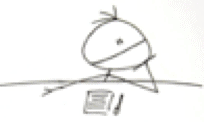July 13th, 2018

The displacement of people because of conflict/war and/or caused by environmental/political/economic crisis means that many may arrive at refugee camps or their adopted countries with little or no documents supporting their academic achievements. At the 2016 NAFSA Region XII Conference in Palm Spring, CA, ACEI President & CEO, Jasmin Saidi-Kuehnert presented a session on this topic with focus on “Syria: Education in Crisis and Providing Pathways for Refugees.” In her presentation, Jasmin introduced ACEI’s five-step process, which serves as a practical guide when assisting refugees and displaced people.
Assess the Overall Situation
Reconstruct the individual’s academic history
Gather documents
Assess Competency
Verify
Let’s take a look at each of the five steps recommended in this model:
Step 1. Assess the overall situation

Assess the overall situation to determine if the claim for lack of documentation is legitimate (that is, is the source country at war or devastated by natural/environmental crisis that prevents the individual in securing his/her academic documents?). You may look at a variety of sources to obtain confirmation, such as:
- Check the US Department of State website
- Search Internet on recent news from official news sources
- Email the institution and/or Ministry of Education in the source country
- Contact the U.S. Embassy in the source country
- Contact the Embassy or Consulate of the country
- Telephone the institution (seek the help of a native speak or someone fluent in the language)
Step 2. Reconstruct the individual’s academic history

One way to obtain an understanding of your applicant’s predicament and academic achievement is by reconstruct their academic history.
- Follow your general procedures (as you would all prospective applicants)
- Require completion of an application
- Require submission of official academic documents
- Conduct an interview
Step 3. Gather Documents

In the absence of complete academic documents, there are other types of documentation an individual may have in his/her possession that may include any of the following:
- Gather any available academic and/supporting documents
- Student IDs
- Registration cards/enrollment slips
- Any transcripts, certificates/diplomas even if incomplete
- Copies of licenses
- Certificates of professional standing/membership
- State examinations certification
- Proof of tuition payments/receipts from institution’s bursary
- Sworn statements/affidavits from exiled faculty/school administration
- Newspaper clippings/articles/announcements or printed lists of graduated students
Step 4. Assess Course Competency

Assessment of an individual’s competency in a course or series of courses may be achieved through the following methods:
- Interview by member of faculty
- Assignment of special project
- Challenge/placement examination
Step 5. Verify

Finally, we need to verify and check everything that has been presented and collected to prepare a portfolio/dossier on the individual.
- Confirm again the crisis situation in the country and institution with official sources (e.g. U.S. Department of State, Embassy of the country from which the individual originates)
- Ensure that you have in-house expertise on the country/region in question and its education system
- Compare and verify any document gathered against samples from the same country and institutions in your archives
- Use social media sites such as Facebook, Instagram, Twitter for your applicant and LinkendIn and Academic.edu for scholars from the conflict area
- When in doubt consult with and seek advice of colleagues in your profession and/or reach out to external sources such as independent evaluation services (members of AICE-Association of International Credential Evaluators)
This is a dynamic guide and we welcome your comments and suggestions. Please share with us your experiences and any tips you may have on this subject so that we may consider adding them to the guide.

The Academic Credentials Evaluation Institute, Inc. (ACEI), was founded in 1994 and is based in Los Angeles, CA, USA. ACEI provides a number of services that include evaluations of international academic credentials for U.S. educational equivalence, translation, verification, and professional training programs. ACEI is a Charter and Endorsed Member of the Association of International Credential Evaluators. For more information, visit www.acei-global.org.
